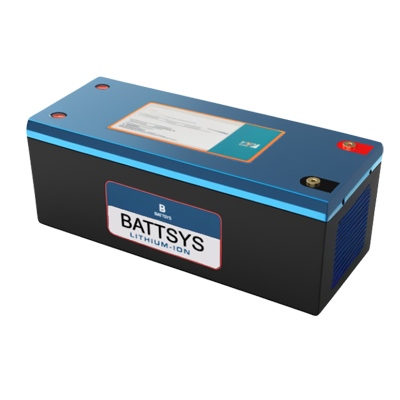Which is more environmentally friendly,
lithium battery or lead-acid battery?
In today's society, batteries have become an indispensable power supply device, whether it is household appliances or transportation equipment such as cars, they cannot do without batteries. Lithium batteries and lead-acid batteries are two common types of batteries, so which one is more environmentally friendly? This article will compare multiple aspects such as production, transmission, use, and recycling in order to draw conclusions.
1. The impact of production process on the environment
Producing batteries requires a certain amount of resources and generates pollutants such as wastewater and exhaust gas, which have a certain impact on the environment. The production process of lead-acid batteries requires the use of a large amount of heavy metal materials such as lead, and the mining of these mineral resources will bring great environmental impacts. Meanwhile, during the battery production process, a certain amount of acidic waste gas and acidic wastewater are generated, which cause significant damage to the environment. The manufacturing process of lithium batteries is relatively simple, requiring only a few substances such as lithium, nickel, cobalt, etc., and has a relatively small impact on the environment.

In summary, from the production process, lithium batteries are more environmentally friendly than lead-acid batteries.
2. The impact of transmission on the environment
The transmission of batteries can also cause certain damage to the environment. Lead acid batteries have a large weight and require transportation by large trucks, ships, etc., therefore, they have higher requirements for transportation. Lithium batteries, on the other hand, have a relatively small volume and light weight, and can be transported through regular express delivery and other means, reducing transportation costs and environmental damage.
Therefore, in terms of transmission, lithium batteries are also more environmentally friendly.
3. The impact of usage on the environment
After the use of batteries, pollutants will be generated, such as lead-acid batteries, which will produce a large amount of harmful substances such as lead sulfate and sulfur dioxide, causing serious harm to the environment and human health. Lithium ion batteries are pollution-free and will not have any impact on the environment or human health.
Therefore, in terms of usage, lithium batteries are more environmentally friendly.
4. The impact of recycling on the environment
Battery recycling is crucial for protecting the environment and resources. At present, the recycling rate of lead-acid batteries is relatively high, and resource recycling can be basically achieved. However, during the recycling process, certain exhaust gases and wastewater may be generated, which may have a certain impact on the environment. The recycling rate of lithium batteries is relatively low, but due to the relatively simple materials used, the pollution generated during the recycling process is also less than that of lead-acid batteries.
Therefore, in terms of recycling, the impact of the two is relatively balanced.
5. The impact of safety on the environment
The safety of batteries can also have an impact on the environment.
Lead acid batteries have various safety issues such as overcharging, over discharging, and gas leakage, so strict management is necessary. Once a safety accident occurs, it will cause serious pollution to the environment. However, the safety of lithium batteries is relatively high, and there are no safety hazards such as gas leakage, so they pose less harm to the environment and human health. Therefore, from a safety perspective, lithium batteries are more environmentally friendly.
